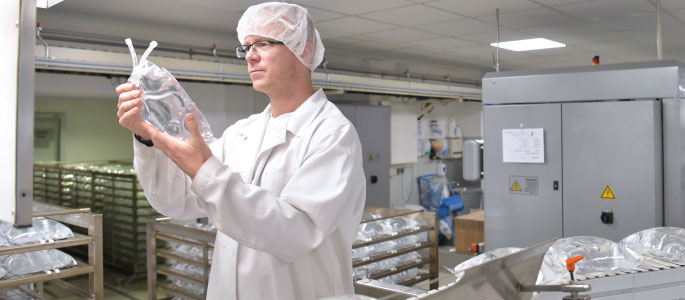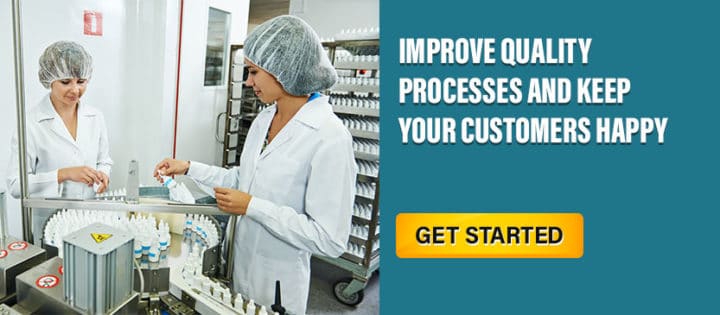
Total Quality Management (TQM) is significant for all areas of a manufacturing business, including production and operations management. Whether it is about quality control in production management, or about any other functionality, TQM approach has proved its worth. Let’s find out how.
Overview
The manufacturing businesses around the globe pay great emphasis on quality. Or let us rephrase it a bit- excellent manufacturing businesses pay great emphasis on quality in business processes, all their operations, and basically pretty much in everything they do.
Such businesses, which include best of the best from different industrial sectors, allow a mere 3.4 defects per million parts in manufactured goods. In simple words, the best businesses allow just 3.4 mistakes per million activities in a service operation, making their processes 99.99966 percent perfect.
This is known as the six sigma approach to TQM. But this isn’t about the six sigma approach. This is about TQM, and its importance in production and operations management. So let’s get started with some important definitions first. Also Read: What is the difference between Quality Control and Quality Assurance?
First things first, what’s TQM?
Total Quality Management is a manufacturing philosophy which allows organizations to focus on improving the quality of their products or services at every level, the efficiency of their operations, and producing higher quality products with few defects.
With concepts such as customer satisfaction and continuous improvement at its core, TQM approach encourages all members of a manufacturing organization to participate in activities focused at continual improvement of the products, services, business processes, and the organizational culture, with the emphasis on delivering defect-free products/services to the customers.
This approach relies on the use of different tools such as strategy, data, and effective communication, so that its ultimate objective of doing things right the very first time, every time, so that the cost, time, and other resources required to correct poor work, and failed product/service implementations, can be saved, is achieved. Also Read: Benefits of a Functioning Nonconformance Management System
Production and operations management: An overview
Production management in a manufacturing organization is essentially about planning, scheduling, controlling, and executing all the activities related to the creation of products and services. These activities involve turning the inputs like raw materials and capital into outputs like products/services.
Managing this entire process of converting the inputs into final output is the role of operations management. Or in simpler words, operations management is all about managing production and delivery of products/services, and production management is a part of it.
At the core of both these approaches is customer satisfaction, which is an essential part of effective production and operations. Over the years, the manufacturing function has become more outwardly focused, as against the inwardly approach of the yesteryears. What it has done is that the focus on quality has now become a central component of effective production and operations management.

What’s Total Quality Management in production and operations management?
TQM helps all the customer-focused manufacturing organizations create an environment of continuous improvement through total involvement of all their internal resources, and consistently deliver high-quality output that delights customers.
All the organizations depend on their customers, who actually determine the level of quality, which is nothing but the fitness of a product or service for meeting or exceeding its intended use as required by them. As a matter of fact, quality begins with the design of a product in accordance with the customer specification.
With customers becoming more and more demanding in terms of expecting greater durability, reliability, and quality at the most economic price, manufacturers are forced to strictly follow quality procedures throughout, and provide a product or service at the most economical costs, thus ensuring full customer satisfaction. This can be achieved through TQM.
By applying the TQM approach, manufacturers get to understand their customers’ current and future needs, and work towards exceeding their expectations by continually improving the quality, processes, etc., which eventually results in increased customer loyalty, and revenue.
Importance of Total Quality Management in production and operations management
- TQM ensures superior quality products and services. The single-most important objective of TQM is to deliver a high quality product, which not just meets the customers’ expectations, but exceeds it, delivering customer satisfaction. With it, the manufacturing organizations can check an important box in production and operations management, i.e., delivering customer satisfaction, and survive the cut-throat competition.
- TQM is essential for customer loyalty. All the successful businesses thrive not only on new customers, but also on the loyal set of customers they are able to retain in the long run. And how do they retain them? The answer is by understanding their needs, meeting them, and also taking their constant feedback to understand the change in their preferences. Here the TQM approach comes in handy, ensuring high quality products/services by eliminating any chances of defects as well as incorporating continuous improvements in the system. This in turn leads to loyal and satisfied customers who bring ten new customers along with them. Tools such as a quality management system (QMS) can help organizations design and create products of exactly the customers’ choice.
- TQM ensures increased revenues and higher productivity. With greater customer loyalty, comes repeat business, which in turn increases cash flow, creates better business opportunities, and also results in better pay for the employees, thus satisfying them and helping create a healthy workplace. In a nutshell, TQM processes make an organization a better place to work, and enable their employees to deliver more using less resources.
Benefits of Total Quality Management in production and operations management
- Reduced product defects and product recalls
- Reduced costs in customer support, product replacements, and service
- Improved competitive position
- Adaptability to changing market conditions
- Reduced risk in designing new products and processes
- Improved image in the market
Quality management system for the TQM approach
Manufacturing organizations often turn to a TQM software, or a QMS software for the application of the TQM approach to their businesses. With functionalities such as non-conformance (NC) and Corrective Action Preventive Action (CAPA) management, change management, complaint management, training management, and document management at its core, a QMS system can act as a TQM software, and help businesses by improving their quality processes.
It essentially does so by offering a structured platform which drives continuous improvement by capturing all documents, and interactions, related to quality improvement, by structuring the workflows and providing alerts and notifications to bridge the gaps between organizational levels and teams, and bringing everyone on the same page by providing with access to the information they require.
How we can help
If you’re interested in finding out more about how a TQM software, or a QMS software, can play a significant role in streamlining the production as well as operations management functions in your business, then you’re at the right place. Write to our in-house quality experts at QualityMaster for scheduling a demo, or simply having a no-obligation discussion.


